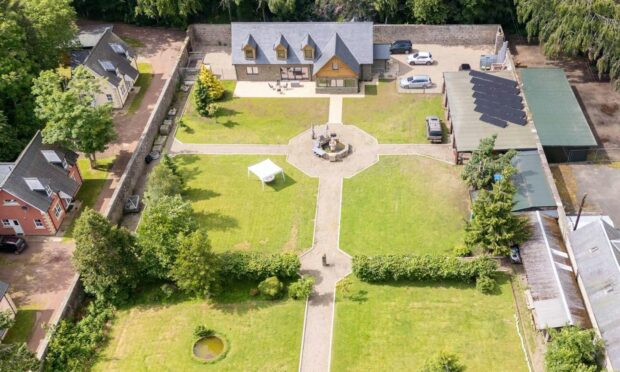More and more young people are turning to the Bank of Mum and Dad – and even Gran and Grandad – as higher interest rates pile on the pressure.
But while parents and grandparents may want to help out, their generosity might come at a price.
Dundee lawyer Caroline Fraser warns that giving cash to loved ones might land them a hefty tax bill.
Her firm in the city is dealing with a growing number of people across Tayside and Fife seeking advice on the dangers of being caught in an inheritance tax trap.
So, when are family gifts at risk and what is the advice?
Who is likely to be hit with inheritance tax?
Young people receiving help with a deposit on their first home could fall foul.
But it’s not just property purchases that carry a risk, cash given to buy a car, for example, or fund home improvements could come with a sting in the tail.
Inheritance tax is payable if the person who made the gift dies within seven years of doing so.
Caroline, a partner in legal firm RSB Lindsays, says: “Securing a deposit is challenging enough, but with daily costs going up for everyone, some will undoubtedly find it even more difficult to save what they need. Their loved ones naturally want to support them.
“Unfortunately some gifts come at a cost which many simply are not aware of, should inheritance tax become an issue.”
Recent research by Aviva found that 14% of homeowners asked had helped their children become first-time buyers and a further 19% said they intended to.
And Caroline said higher interest rates and inflation mean it’s likely even more parents and grandparents will be digging deep to help out.
So what is her advice?
“It is still possible for help to be given, so long as people seek expert advice before they make their gift.”
Caroline’s tips for giving money tax free
- You can give cash up to £3,000 each tax year (any unused annual exemption can be carried forward one year only)
- Up to £5,000 can be gifted from each parent for a child’s marriage or civil partnership (£2,500 from grandparents and £1,000 from anyone else)
- Regular gifting as part of ‘normal expenditure out of income’, including birthday or Christmas presents is allowed
- Combining exemptions for the same person is allowable, meaning a couple whose child was marrying could each give them at least £8,000 in ‘exempted gifts’ (a wedding gift of £5,000, a £3,000 gift, any unused exemption from the previous year, and a top-up birthday present). Other family members could also chip in.
- Beware any gifts do not push your estate above the inheritance tax threshold (£325,000 in the current tax year).












Conversation